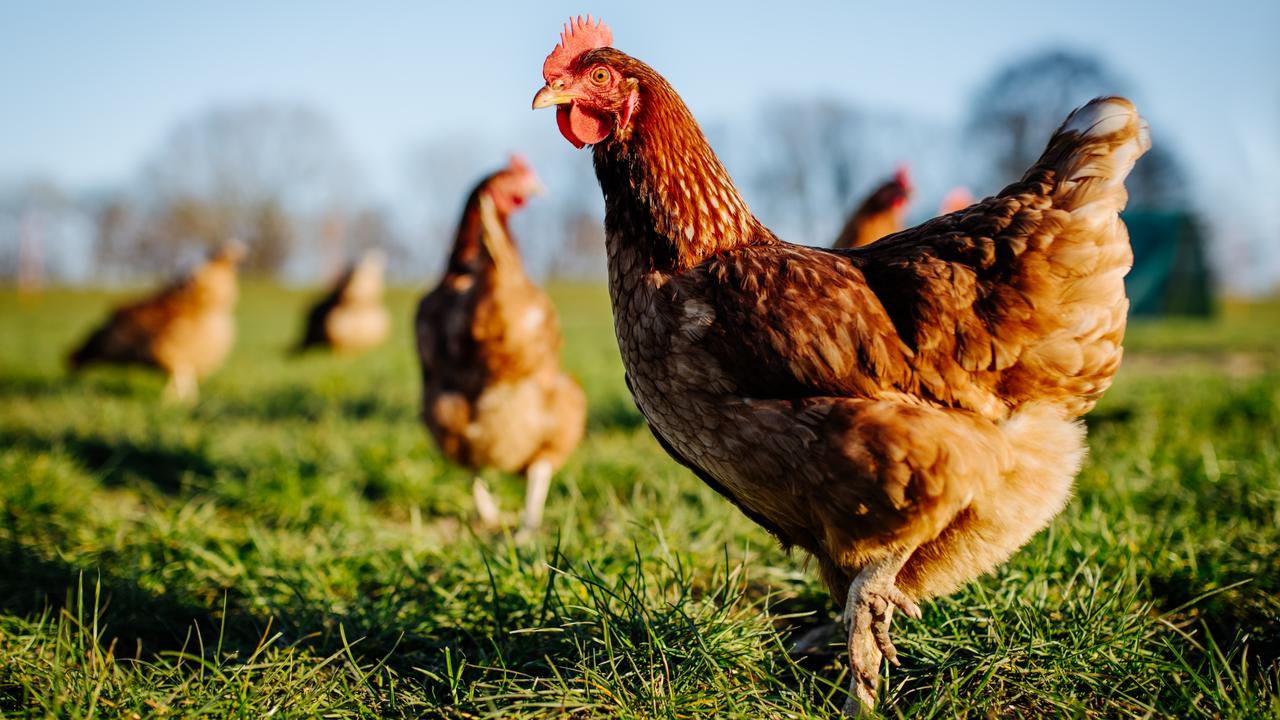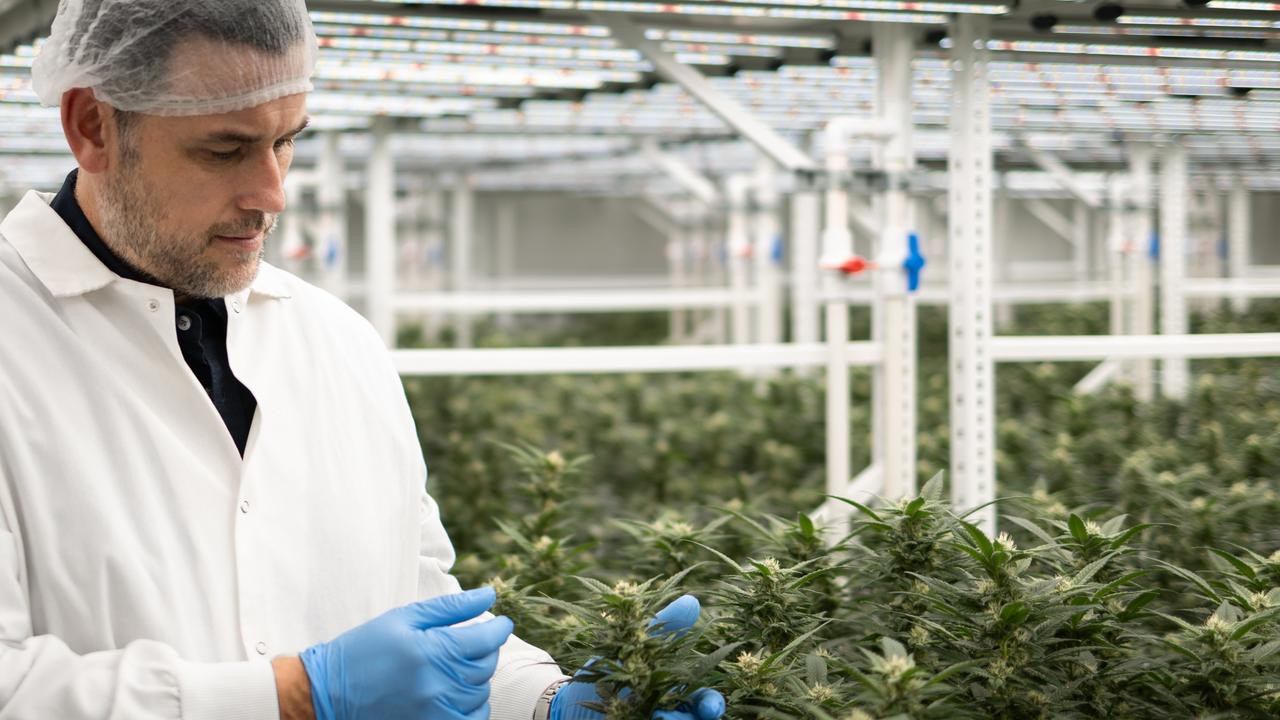Al the twists and turns in Novak Djokovic’s Australian border drama
As he awaits his fate in detention, Novak Djokovic may be left wondering if his seemingly cheerful Instagram post sealed his remarkable border rejection.
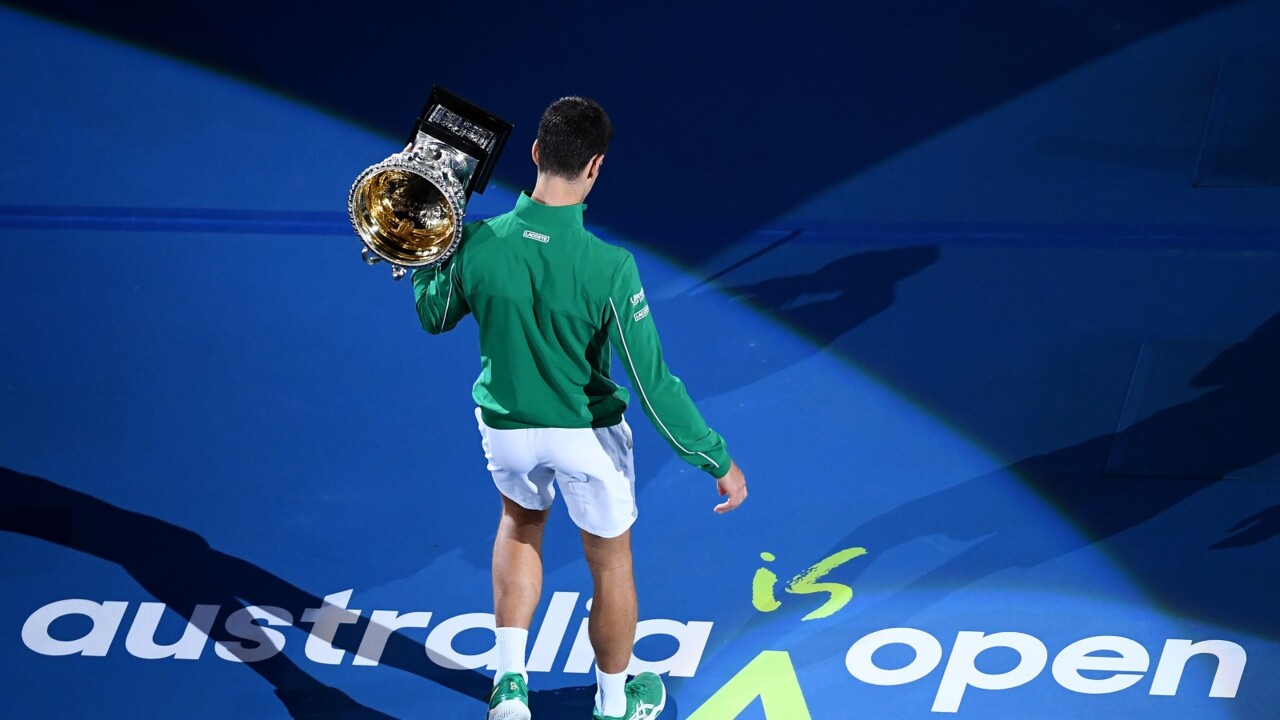
Victoria
Don't miss out on the headlines from Victoria. Followed categories will be added to My News.
When Novak Djokovic took to Instagram to tell the world he’d received a medical exemption for the Australian Open, he hit the biggest unforced error of his career.
Djokovic’s post on Tuesday night prompted federal authorities to put the tennis star’s arrival in Australia under the microscope.
The post also caused some Victorian health officials to question the validity of the world No. 1’s health claims.
And the same social media brag stunned the Victorian government, forcing it to publicly slam the controversial champion in a move that would later leave him stranded without any support to enter the country.
Djokovic’s serve – “heading Down Under with an exemption permission” – also set off rallies between the state and federal governments, and Australian Border Force and Tennis Australia, more heated than anything centre court has ever seen.
“How on earth could he have ever gained an exemption?” one health department source told the Herald Sun after reading the post. “Claims that he has some kind of underlying health condition that would lay the rest of us low, while he can continue as a professional athlete, just don’t hold water.”
But perhaps Djokovic feels he knows more about the nature of water than health experts.
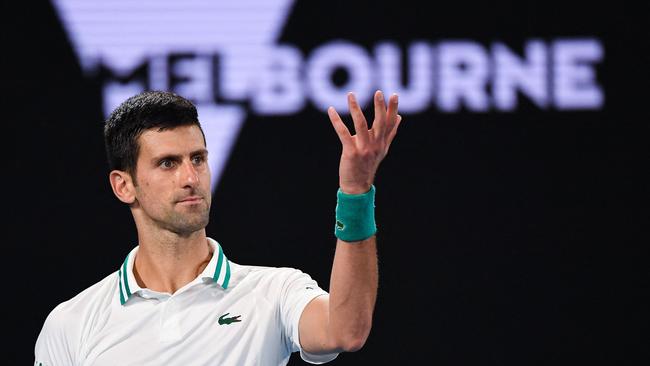
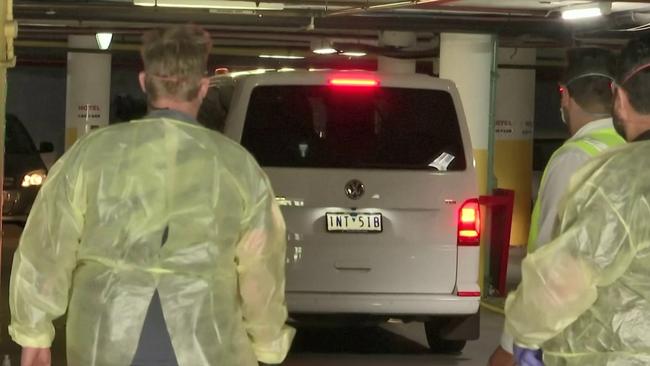
After all, it was the Serb’s claims that “emotions” can make “toxic” food and water more healthy – as he detailed in a May 2020 Instagram Live chat – that focused the attention of many dealing with Covid vaccine sceptics.
When reporters asked Djokovic two months ago about Covid vaccine requirements to enter Australia, his response was further noted by some of those organising the Open entry requirements at the same time.
“Freedom of choice is essential for everyone, whether it’s me or somebody else,” Djokovic told journalists on November 18. “Doesn’t really matter whether it’s vaccination or anything else in life. You should have the freedom to choose, to decide what you want to do. In this particular case, what you want to put in your body.”
A week earlier, Tennis Australia and the Victorian government had written to federal authorities outlining plans to help 3300 players and officials through the border so they could stage the 2022 Australian Open.
On November 29, federal Health Minister Greg Hunt wrote back to Tennis Australia chief Craig Tiley, warning a tough stance would be taken.
“I can confirm that people who contracted Covid-19 within the past six months and seek to enter Australia from overseas, and have not received two doses of a TGA- approved or TGA-recognised vaccine, are not considered fully vaccinated,” Mr Hunt wrote.
The Victorian government and Tennis Australia established a “blind” panel of medical experts to assess any exemption applications on their merits and to avoid questions of validity or favourable treatment.
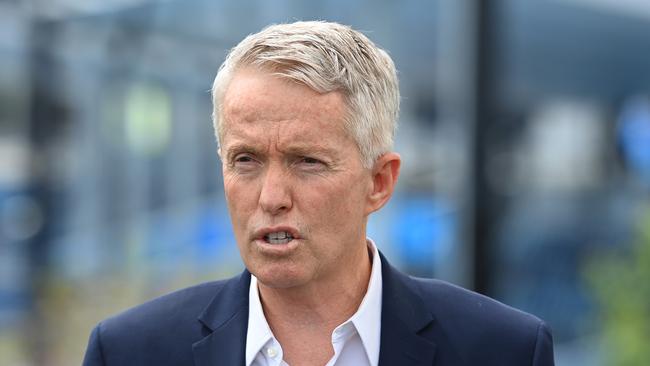
Having set up such strict arrangements, Victorian government sources said they were shocked on Tuesday when Tennis Australia informed them Djokovic had been granted a medical exemption – and stunned again when Djokovic then used Instagram to announce that he’d accepted it.
“We genuinely thought he wouldn’t come when he got the medical exemption,” a government insider said.
“Once he pulled out of the ATP Cup, we didn’t think he would be coming. When they came back to us and said, ‘He’s definitely coming,’ we thought ‘Jeeze.’ There was a genuine surprise. But once we got through yesterday (Wednesday) we thought that this matter had been dealt with and put to bed.”
Federal sources have revealed that interest in Djokovic’s arrangements, sparked by the Instagram post, escalated as he boarded a plane from Dubai to Melbourne.
Prime Minister Scott Morrison said: “When you get people making public statements about what they say they have and what they’re going to do and what their claims are, well, they draw significant attention to themselves and … they can expect to be asked questions more than others.”
Shortly after 6pm on Wednesday, ABF officials contacted Tennis Australia and the Victorian government about the medical exemption, asking what information the star had provided. Accounts of those frantic conversations differ between Canberra and Melbourne, with the federal government maintaining neither it nor the Border Force had asked the state to support an individual visa application, and the Victorians maintaining they were asked if they wanted to sponsor Djokovic’s entry.
Regardless of who wins that exchange, a Victorian source involved in conversations throughout the Wednesday night said the process became “chaotic”, ending in demands for requests to be put in writing in preparation for the blame game to start.
“We were shocked once our officials started getting phone calls,” the Victorian source said. “There was a relative element of shock at the fact that this had popped up.
“There was no question about it, everyone was on the same page that we’re not supporting him – it’s not our job to support Djokovic.”
As the political serve-and- volley continued, Djokovic landed shortly after 11pm and, with no resolution in sight, officials placed the star in a guarded room and began interviews.
Sources say his paperwork had been filled out by Tennis Australia, leaving Djokovic struggling to produce the required medical information supporting his exemption or to answer tricky questions in a nine-hour process.
By 9am on Thursday, Djokovic’s visa was denied, and it was instead time for Scott Morrison and Serbian President Aleksandar Vucic to begin a verbal rally of their own.
“Rules are rules, especially when it comes to our borders. No one is above these rules,” Mr Morrison tweeted.
Mr Vucic returned on Instagram: “Our authorities are taking all measures to stop the harassment of the best tennis player in the world in the shortest possible period. In accordance with all the norms of international public law, Serbia will fight for Novak Djokovic, for justice and truth.”
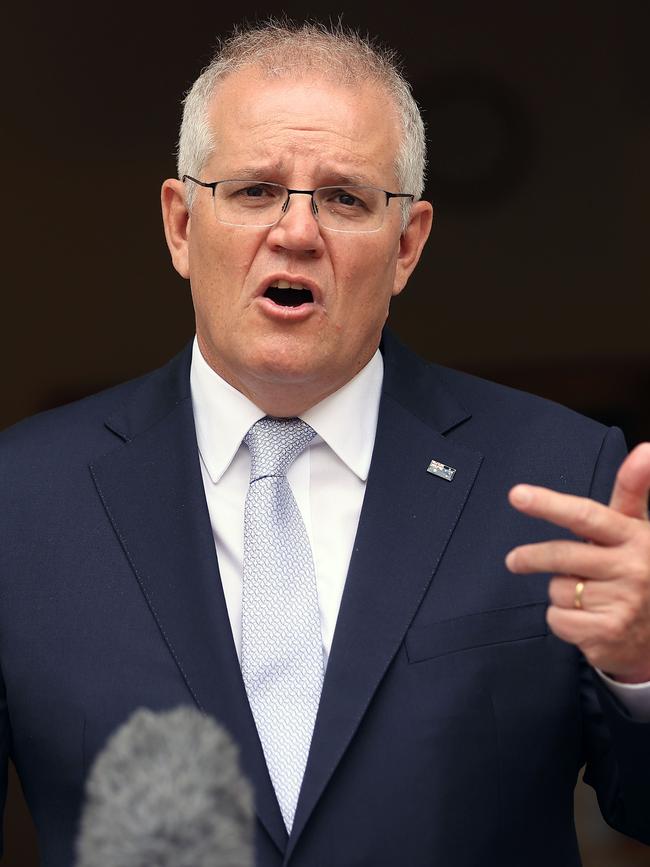
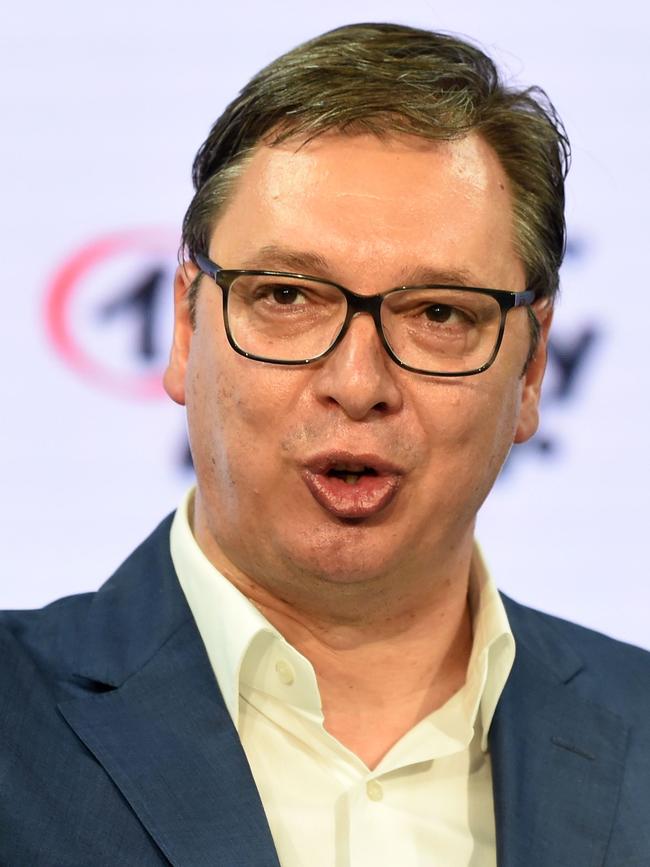
An hour later, Djokovic was finally able to leave the Melbourne Airport interview room – but only to travel to Carlton’s Park Hotel, which operates an immigration detention centre and also offers food servings alleged to contain maggots.
“It’s not somewhere people would like to come,” said refugee Azizi, who continues to have nightmares about his stay at the Park Hotel.
“If I have big money, I never ever would go to the Park Hotel.
“The Park Hotel is not for people who have money. It’s a very sad place.
“It’s very old, very dirty and smells bad. It’s cheap. We can’t open the windows so there is no fresh air. It’s very bad.”
While Djokovic was forced to make himself at home in detention at a modest hotel on Thursday afternoon, rather than practising his skills at Melbourne Park, he at least managed to launch his title defence at a different court.
Now it is up to his lawyers to convince a judge at the Federal Circuit and Family Court to overturn the Border Force decision to deport him.
Djokovic has won his past 21 battles in Australia, all of them on court.
No. 22, in court, may see a rare defeat.



